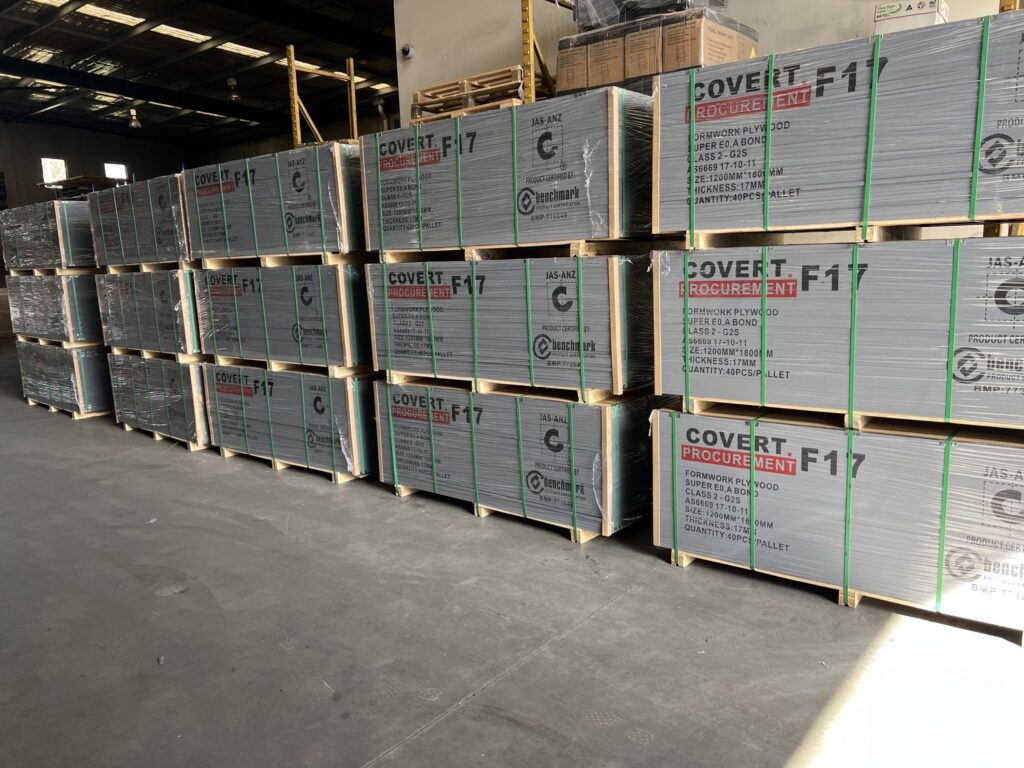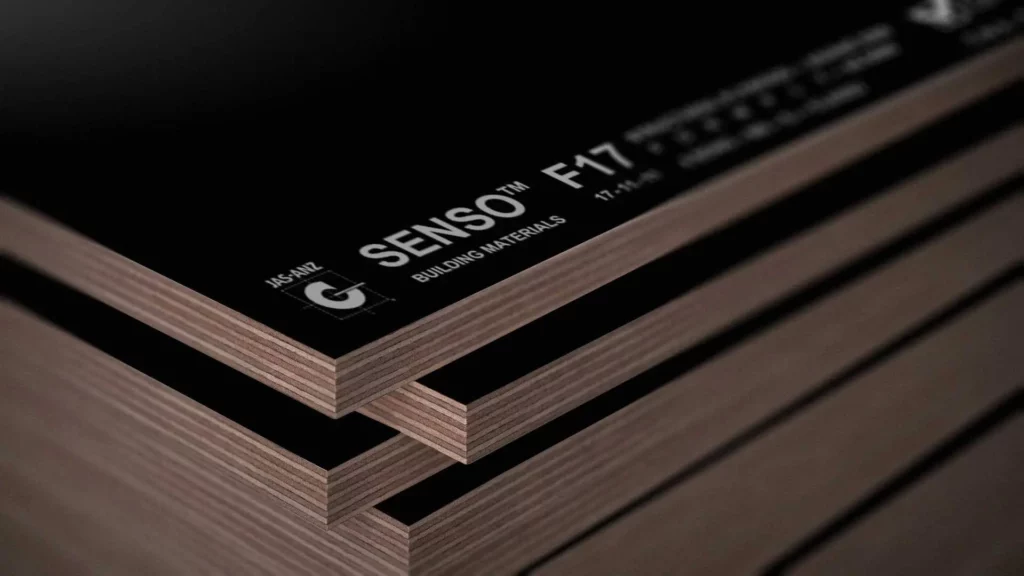If you are involved in construction projects that require formwork, then choosing the right material is essential for ensuring the stability and success of your project. One material that stands out in terms of quality and performance is F17 grade plywood. F17 grade plywood offers a range of benefits that make it the optimal choice for your formwork needs.
Understanding the Basics of F17 Grade Plywood
Before delving into the unique features and benefits of F17 grade plywood, it is important to understand its composition. F17 grade plywood is made from multiple layers of wood veneer that are bonded together with a strong adhesive. The layers are arranged in a cross-grain pattern, which enhances the strength and durability of the plywood.
Unlike lower grades of plywood, F17 grade plywood undergoes strict quality control measures to ensure that it meets the required standards. This makes it a reliable and trustworthy option for formwork construction.
The Composition of F17 Grade Plywood
F17 grade plywood is typically made from high-quality hardwood, such as birch or maple. These hardwoods offer excellent strength and durability, making the plywood resistant to bending, warping, and cracking. This ensures that your formwork will maintain its shape and stability throughout the construction process.
The layers of wood veneer are also bonded together with a high-quality adhesive, which further enhances the strength and stability of the plywood. This adhesive is designed to withstand the pressures and stresses that formwork is subjected to, ensuring that the plywood can handle the weight of the concrete and any other loads placed upon it.

The Unique Features of F17 Grade Plywood
One of the standout features of F17 grade plywood is its high strength rating. The “F17” designation indicates that the plywood has a minimum stress grade of F17, which means it can withstand a maximum bending stress of 17 megapascals. This makes it suitable for a wide range of formwork applications, including slabs, columns, and walls.
In addition to its strength, F17 grade plywood also offers exceptional durability. It is designed to resist moisture and weathering, making it suitable for both outdoor and indoor formwork projects. This durability ensures that the plywood will last for multiple uses, reducing the need for frequent replacements and saving you time and money in the long run.
Furthermore, F17 grade plywood is known for its versatility. Its strong and stable composition allows it to be used in various construction applications beyond formwork. It can be used for flooring, roofing, and even furniture making. This versatility makes F17 grade plywood a valuable material for contractors and builders, as it can serve multiple purposes on a construction site.
Another advantage of F17 grade plywood is its ease of use. The plywood is lightweight, making it easier to handle and transport. This can significantly reduce labor costs and improve overall efficiency on a construction project. Additionally, F17 grade plywood is easy to cut and shape, allowing for precise customization to fit specific formwork requirements.
Lastly, F17 grade plywood is environmentally friendly. It is made from sustainably sourced hardwoods, ensuring that the production process does not contribute to deforestation or habitat destruction. By choosing F17 grade plywood, you can be confident that you are using a material that is both durable and eco-friendly.
The Role of Plywood in Formwork Construction
Before we explore the specific benefits of using F17 grade plywood in formwork, let’s first understand the importance of material choice in formwork construction.
Formwork is the temporary structure that supports the weight of the concrete until it is strong enough to support itself. It plays a crucial role in ensuring the structural integrity of the final construction. Choosing the right material for formwork is essential for achieving a safe and stable structure.
The Importance of Material Choice in Formwork
When selecting a material for formwork, several factors need to be considered. These include strength, durability, ease of use, and cost-effectiveness. The material needs to be able to withstand the weight of the concrete and any other loads without sagging, bending, or breaking. It also needs to be resistant to moisture and weathering to ensure its long-term performance.
F17 grade plywood meets all these requirements and more, making it an excellent choice for formwork construction. Its high strength rating, durability, and resistance to moisture make it suitable for a wide range of formwork applications.
How Plywood Contributes to Formwork Stability
Plywood, including F17 grade plywood, provides excellent stability to formwork structures. Its cross-grain pattern ensures that the plywood panels distribute loads evenly, preventing localized stress concentrations. This enhances the overall strength and stability of the formwork, reducing the risk of structural failures. Find more about stability on https://cursus.edu/en/28581/stability-and-instability
Additonally, plywood can be easily cut and shaped to fit different formwork configurations. This flexibility allows for efficient and accurate formwork assembly, saving time and labor costs.
Furthermore, F17 grade plywood offers exceptional dimensional stability, meaning it maintains its shape and size even when exposed to changes in temperature and humidity. This characteristic is crucial in formwork construction, as it ensures that the formwork remains intact and does not warp or deform during the concrete pouring and curing process.
Another advantage of using F17 grade plywood is its smooth surface finish. This feature is particularly important when it comes to formwork removal. The smooth surface minimizes the adhesion of concrete to the plywood, making it easier to strip the formwork without damaging the concrete surface. This not only saves time and effort but also improves the overall quality of the finished concrete structure.
Moreover, F17 grade plywood is known for its excellent reusability. After the completion of one project, the plywood can be carefully dismantled and stored for future use. This not only reduces waste but also provides cost savings for future construction projects.
In conclusion, the role of plywood, especially F17 grade plywood, in formwork construction cannot be overstated. Its strength, durability, resistance to moisture, and ease of use make it an ideal material choice for ensuring the stability and structural integrity of formwork structures. Whether it’s distributing loads evenly or providing a smooth surface finish, plywood plays a vital role in achieving safe and successful construction projects.
The Benefits of Using F17 Grade Plywood in Formwork
The decision to use F17 grade plywood in your formwork offers several advantages that contribute to the success of your construction project.
When considering the benefits of F17 grade plywood, it is essential to delve into its manufacturing process. F17 grade plywood is meticulously crafted using high-quality solid hardwood, ensuring a superior product that meets stringent industry standards. The precise cross-grain bonding and application of high-quality adhesive further enhance the plywood’s durability and strength, making it a reliable choice for formwork applications.
To read about f14 grade click here.
Durability and Strength of F17 Grade Plywood
One of the key benefits of F17 grade plywood is its exceptional durability and strength. Its high-quality solid hardwood composition combined with the cross-grain bonding and adhesive ensure that it can withstand the rigors of formwork construction. F17 grade plywood can endure heavy loads, impacts, and regular use without compromising its structural integrity.
Furthermore, the durability of F17 grade plywood allows for multiple reuses, reducing the need for constant replacements and resulting in cost savings over the project’s lifespan.
When it comes to structural integrity, F17 grade plywood excels in providing consistent performance under varying environmental conditions. Whether exposed to moisture, extreme temperatures, or heavy loads, F17 grade plywood maintains its shape and strength, offering reliability throughout the construction process.
Cost-Effectiveness of F17 Grade Plywood
While F17 grade plywood may have a higher upfront cost compared to lower grades, its long-term cost-effectiveness makes it a wise investment. The durability and strength of F17 grade plywood mean that it can be used for multiple formwork projects, reducing material waste and saving money in the long run.
Moreover, the ease of use and flexibility of F17 grade plywood contribute to faster construction times and improved labor efficiency, resulting in additional cost savings. To read more about flexibility click here.

Comparing F17 Grade Plywood with Other Plywood Grades
When it comes to selecting the right plywood for your formwork needs, understanding the unique advantages and suitability of F17 grade plywood in comparison to other plywood grades is crucial. Let’s take a closer look at how F17 grade plywood stacks up against lower and higher plywood grades.
F17 Grade Plywood vs Lower Plywood Grades
Compared to lower plywood grades, such as F11 or F14, F17 grade plywood truly shines with its significantly higher strength and durability. While lower grades may be more prone to bending, warping, and cracking under heavy loads, compromising the stability and safety of the formwork, F17 grade plywood stands strong. Its exceptional strength rating ensures that it can handle the pressures and stresses exerted by concrete and other heavy loads effectively.
But that’s not all. F17 grade plywood also boasts impressive resistance to moisture and weathering, making it a superior choice for both outdoor and indoor formwork applications. So, whether you’re working on a construction project exposed to the elements or an indoor structure, F17 grade plywood has got you covered.
F17 Grade Plywood vs Higher Plywood Grades
Now, let’s turn our attention to the higher plywood grades, such as F22 or F27. While these grades offer even greater strength and durability than F17 grade plywood, they may not always be necessary for most formwork applications. Here’s where F17 grade plywood truly shines.
With its balance between strength and cost-effectiveness, F17 grade plywood proves to be a versatile choice for a wide range of formwork projects. It provides the optimal combination of strength, durability, and affordability, making it an attractive option for many construction professionals.
Of course, there are specific projects that require extreme strength or exceptional longevity, and for those, higher plywood grades may be more appropriate. However, for most formwork needs, F17 grade plywood offers a reliable and cost-effective solution.
So, whether you’re working on a small residential project or a large-scale commercial construction, carefully considering the advantages and suitability of F17 grade plywood will ensure that your formwork stands strong, providing the stability and safety you need.
Making the Right Plywood Choice for Your Formwork Needs
When selecting plywood for your formwork needs, it is crucial to consider several factors to ensure the best possible outcome for your construction project.
Factors to Consider When Choosing Plywood for Formwork
First and foremost, consider the strength and durability requirements of your formwork. Choose a plywood grade that can handle the weight of the concrete and any other loads that will be placed upon it.
Additionally, evaluate the durability and resistance to moisture and weathering of the plywood. This is particularly crucial for outdoor formwork projects exposed to the elements.
Lastly, consider the cost-effectiveness of the plywood. Calculate the long-term savings that can be achieved through reusability, reduced material waste, and improved labor efficiency.
Why F17 Grade Plywood is the Optimal Choice
F17 grade plywood checks all the boxes when it comes to selecting the right material for your formwork needs. Its high strength rating, durability, resistance to moisture, and cost-effectiveness make it the optimal choice for a wide range of formwork applications.
By choosing F17 grade plywood, you can ensure the stability, safety, and success of your formwork construction projects, while also benefiting from long-term cost savings and improved project efficiency.